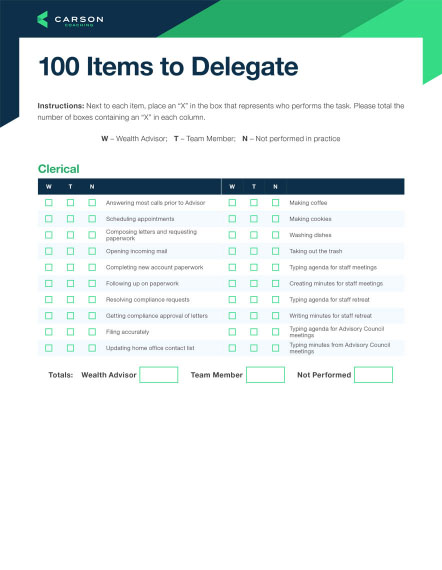Fluctuating markets, discussions of Social Security shortfalls, and health care constantly under pressure is leading to people feeling a great deal of uncertainty. This uncertainty clients are feeling is trickling up to advisors – and it shows. One thing I notice on my travels is that many advisors are feeling and looking burnt out. For the last decade, a lot of advisors have ridden high on performance, but now with so many uncertainties in the market and industry, advisors are feeling the pressure. The next two years are likely to be more stressful for advisors than previous years as economic indicators are pointing to an economic slowdown or market pullback. We often talk about financial advisors as if they’re immune to workplace challenges and common world issues. But advisors are employees, business owners, and in need of a lot of the general workplace best practices that all of America needs.
Stressing Numbers
Last year, a Gallup poll showed that roughly 23 percent of employees surveyed felt burnt out “very often” or “always,” and another 44 percent stated that they were burnt out at work “sometimes.” The leading cause: work, by a large margin. A survey by the American Institute of Stress showed that 46 percent of Americans are stressed because of workload and another 20 percent are stressed trying to balance work and personal lives. Employees who feel burnt out at work can experience negative implications in their personal life and can drag down the production and effectiveness of a company if not treated. It’s a vicious cycle. The same Gallup poll showed those who are burnt out at work are 63 percent more likely to take a sick day, 2.6 times as likely to leave their current employer and 13 percent less confident in their performance. Four of the five factors Gallup lists as most correlated burnout are issues that I see prevalent with advisors: too much work on their plate, lack of clarity of role, unreasonable time pressures and a lack of support at work. And if you’re running your own practice and trying to do everything by yourself – acting as CFO, CEO, CMO, CTO, HR and advisor – these issues are sure to pop up.
Taking Back Control of Your (Work) Life
So how can you as an advisor take control of your situation? The first thing to do is to look at your situation and see if you’re feeling burnt out. If so, try to identify the reason. Is it external or internal? Is it driven by work? Are you unhappy with growth or market performance? Next, it’s time to strategize. If your stress is work driven and you’re feeling too much pressure to do all the things your business requires, consider outsourcing or hiring for some of those roles. You could hire a distance administrative assistant. Many online service providers can help with this need for office and time management. You could also partner with another firm. Firm consolidation is a huge market force today, in part because of the economies of scale and growth that potential partnership brings. Furthermore, larger financial service companies offer support for advisors to grow their practice and relieve some of the roles that an advisor-owner might have to carry.
Clarify Your Role
A number of strategies can help advisers avoid or overcome burnout, but the most important strategy an advisor can follow is to clarify their role. Carrying all of the roles of running a company along with being an advisor can actually slow growth and productivity. To grow your business you should really focus on one role. Decide on which role you like best and stick to it. This role clarity can help you feel less stressed and actually grow your practice. Additionally, advisors can reduce stress if they reinvent their practice around planning instead of investment performance. Advisors can’t control the market or investment performance. However, advisors can help control expectations around performance. The best way to do this is to engage in financial planning. Putting together a true plan that provides value outside of investments will provide more security for the advisor and more clarity for the client. It’ll also remove the advisors’ worth from an outside force that the advisor cannot control – the market. Work with clients to get comprehensive plans together that’ll help the client. By doing this, you can add clarity to your own role and help reduce workplace stress. Just because you’re a financial advisor doesn’t mean you’re immune to burnout. Clarify your role, hire or outsource to take work off your plate. Not only will you reduce burnout and stress, you’ll actually help grow your firm. Take care of yourself so you can continue to take care of your clients.


